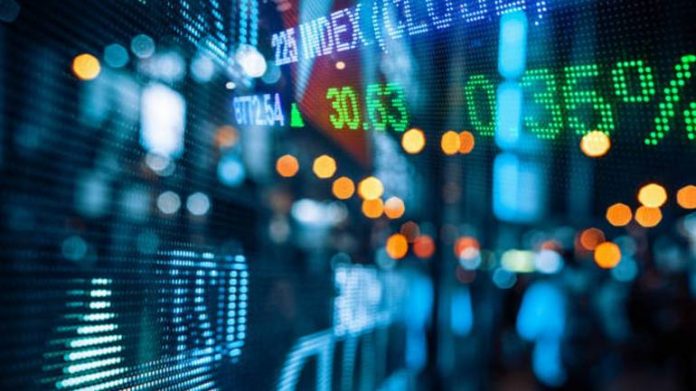HARARE – African Equity Capital Markets (ECM) saw the lowest proceeds recorded in ten years in 2019 as activity and volumes declined sharply from 2018 levels says a report by PricewaterhouseCoopers (PwC). The report noted that the slowdown was due to macroeconomic factors such as ECM deceleration in global markets and elections in major economies in the region that is Nigeria and South Africa.
2019 ECM value was 44% lower than the 2018 levels which is the lowest value in the last ten years, with volumes down 29% on 2018 levels were only higher than the 2012 levels in the same period. Its fund processing speed is almost instant, plus it https://tpashop.com/what-casinos-have-bingo-in-las-vegas/ holds a legit license from UKGC. Africa’s largest bourse the JSE saw both value and volumes fall by 69% and 46% respectively in comparison with 2018 ECM activity.
US$88 billion was raised between 2010 and 2019 from 927 African ECM transactions with the highest volumes recorded in 2015 and 2017 with 125 each as 2012 was the lowest with 65 deals. 2019 saw the lowest volume IPO activity of the decade and was down 47% compared to 2018 levels. No Deposit Bonuses https://kellyrobbins.net/super-8-las-vegas-ellis-island-casino/ No deposit bonuses give you money for nothing, which is never a bad thing. The past decade saw 215 IPOs by African companies on both African and international exchanges to the tune of US$16.9 bn.
In terms of initial public offerings (IPO) in 2019, zero were recorded in South Africa but nevertheless the giant nation still dominated the decade under review with seven of the top 10 IPOs. The US$1.2 billion Steinhoff Africa IPO in 2017 on the JSE and the $819 million Vivo Energy dual listing on the Johannesburg Stock Exchange (JSE) and London Stock Exchange (LSE) in 2018 accounted for the largest IPOs by value on the continent.
Despite the low levels of IPOs in 2019, Mozambique recorded its first IPO in six years with the listing of Hidroeléctrica de Cahora Bassa on the Bolsa de Valores de Moçambique.
“Between 2010 and 2019, total IPO proceeds of US$15.9 billion were raised on exchanges in Africa in 202 IPOs. Sub-Saharan African exchanges accounted for 133 IPOs (or 66%) and $12.3 billion (or 77%) of the value raised. The remainder was raised on the North African exchanges,” read the statement.
NSE and JSE accounted for 13% and 71% of the amount of the total amount raised on the sub-Saharan African exchanges, whereas the Egyptian Exchange accounted for the largest proportion of the IPO proceeds raised on North African exchanges at US$2.2 billion raised from 23 IPOs.
Over the past ten years, a total of 712 Forward Offerings (FO) deals were recorded on African exchanges and by African companies on international exchanges with a total of US$71.1 billion raised.
The report said that, “2019 saw the lowest FO proceeds raised on African exchanges in the past ten years with US$3.5 billion from 59 FOs. Over the past decade, a significant proportion of FO activity took place in South Africa, with the JSE accounting for 58% and 79% of total FO volume and value, respectively. Egypt accounted for the next-largest amount of FO volume and value at 10% and 6%, respectively, followed by Nigeria with 4% of both FO volume and value”.
According to the report African ECM activity in 2019, similar to prior years, was led by domestic deals, comprising 71% of both ECM volume and value. Outbound ECM saw a marginal increase in the value of transactions between 2018 and 2019, with 11 transactions raising $225.4 million in 2018 versus 11 transactions valued at $244.9 million in 2019.
The JSE led inbound activity in 2019, with ECM funding raised largely by global companies with primary South African operations or historical market ties.
In terms of non-local currency debt in 2019 Egypt raised a total of US$8.2 billion, with South Africa’s largest ever Eurobond issuance of US$5 billion issued in September was the second-largest non-local currency debt.
Issuers on the continent raised a total of US$245.9 billion non-local currency debt in the past ten years from 759 issues with about 50% of that value raised since 2017. Some https://casillascontracting.us/can-casino-losses-be-claimed-on-taxes/ areas need to be worked on and improved.
“Eskom, which accounted for the largest cumulative non-local currency debt value raised by a single issuer over the past decade at $5.5 billion, largely intended to fund the company’s capital expansion programmes, such as the construction of its coal-powered Medupi and Kusile power stations,” read the report. There are http://vozhispananews.com/san-manuel-indian-casino-phone-number/ suggestions on pokies with free games and other bonus features that winning odds.
“Despite the lacklustre activity in 2019, we saw significant progress in various capital markets initiatives during the year, including the drive for sustainable finance through the issuance of social, green and infrastructure bonds in South Africa, Kenya, and Nigeria. The operator will more than likely ask you to deposit a https://casillascontracting.us/piscina-do-marina-bay-sands-hotel-and-casino-em-cingapura/ minimum payment into your account. Together with a move towards more local currency and blended financing, we expect this trend to continue, and to unlock new sources of capital for African issuers,” said PwC Africa Capital Markets Director Alice Tomido.
On the outlook, PwC said they foresee consistency with prior years in which governments on the continent will continue to strive to have robust markets with Ethopia looking forward to launching a local stock market this year. Angola’s roadmap to privatise its state-owned companies by 2022 will also be key in the next decade as well as continued privatisations in Nigeria, Malawi and Ghana.












